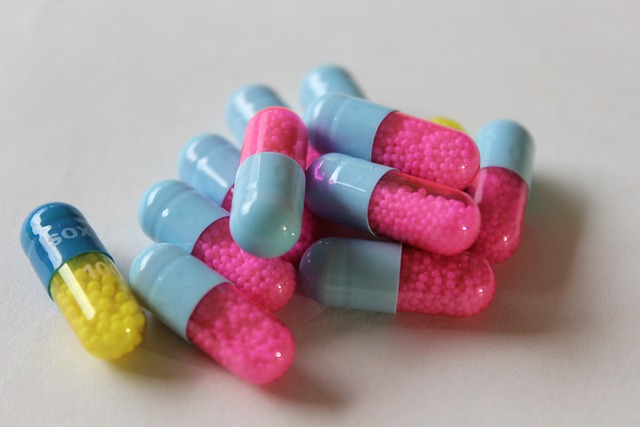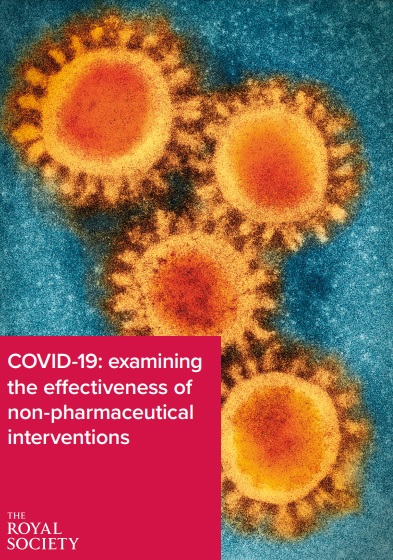What are non-pharmaceutical interventions (NPI)?
Non-pharmaceutical interventions ( NPIs) include any public health measure that is not a vaccine or medication. At the beginning of the COVID-19 pandemic, there were no medications or vaccines available to contain the spread of the causative virus, SARS-CoV-2. This meant that countries relied on non-pharmaceutical interventions (NPIs) to protect populations and health systems until pharmaceutical interventions were developed.
A wide variety of NPIs were used (usually as part of packages). The Royal Society report covered six broad categories used during the pandemic:
- Masks and face coverings.
- Social distancing and ’lockdowns’.
- Test, trace and isolate.
- Travel restrictions and controls across international borders.
- Environmental controls.
- Communications
Why do we need to understand the effectiveness of non-pharmaceutical interventions (NPIs) ?
Scientists and policymakers knew very little about SARS-CoV-2 when the pandemic began. It was unclear what an optimal strategy for NPI implementation would look like, including how outcomes vary for people of different ages, ethnicities, health statuses, and socioeconomic groups. The widespread implementation of NPIs was also economically costly and caused significant social disruption with broader impacts on health and well-being.
Now is an opportune time to learn from the implementation of NPIs during the pandemic and highlight gaps in the evidence to ensure we are prepared for potential future infectious disease outbreaks.
What are the main conclusions of the Royal Society report?
There is clear evidence from studies conducted during the pandemic that strict implementation of NPI packages was effective in some countries in reducing SARS-CoV-2 transmission.
There is also evidence of the effectiveness of individual NPIs, but most NPIs were implemented in packages . Disentangling the effects of one NPI when other NPIs were implemented at the same time presents a significant challenge.
Evidence suggests that NPIs were generally more effective when the number of cases and associated transmission intensity of SARS-CoV-2 were lower. NPIs became less effective as more transmissible variants of the virus (e.g., Delta, Omicron) emerged that were better suited to spreading between people and evading immune responses.
The strictness of application of individual NPIs and NPI packages influenced transmission rates; For example, respiratory masks were more effective than surgical masks and two weeks of quarantine were more effective than shorter periods.
What lessons have been learned to influence how we might address future pandemics?
One of the most important lessons from this pandemic is that effective implementation of NPIs “buys time” to enable the development and manufacturing of drugs and vaccines. There are many reasons to think that the implementation of NPI packages will be important in future pandemics.
Standardized protocols for data collection would improve the quality of observational studies when a new pathogen emerges. National and international collaborations could be established to support this. It is of particular importance to design protocols that can disaggregate the effects of non-pharmaceutical interventions (NPIs) by different demographic factors.
Future evaluations should also consider the costs and benefits of NPIs, in terms of their impacts on, among other things, livelihoods, economies, education, social cohesion, and physical and mental well-being.
Comments
The main non-vaccine measures used to control the Covid-19 pandemic (including lockdowns, masks and testing, tracing and isolation) were effective in stopping the spread of the SARS-CoV-2 coronavirus, according to reviews of thousands of studies conducted worldwide.
"They work," says Mark Walport of the UK’s Royal Society , who chaired a working group of experts behind a major report based on the reviews. The measures saved lives by preventing many people from becoming infected until after vaccines and drug treatments had been developed, he says.
The findings are important because at some point there will be another pandemic, he says. "There could be something much worse than SARS-CoV-2." The effectiveness of these measures varied depending on how and when they were implemented, but they were still “unequivocally effective ,” particularly when used in combination and when infection levels were low, the report says.
“[We] saw the importance of quick and decisive action,” says Salim Abdool Karim of the University of KwaZulu-Natal in South Africa, one of the members of the task force. “You can’t wait until you get perfect tests. “You have to act and act decisively and make these difficult decisions.”

















